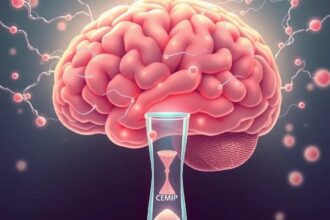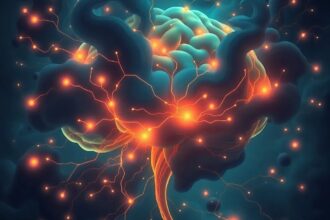Explore the science of neuroinflammation, its impact on brain health, and actionable steps to reduce chronic inflammation through diet, lifestyle, and emerging therapies.
Chronic inflammation in the brain, or neuroinflammation, is a key factor in cognitive decline and mental health disorders. Learn how to combat it effectively.
Understanding Neuroinflammation: The Silent Threat to Brain Health
Neuroinflammation, or chronic inflammation in the brain, has emerged as a critical factor in the development of neurodegenerative diseases such as Alzheimer’s and Parkinson’s. According to a 2021 study published in Nature Reviews Neuroscience
, neuroinflammation is driven by the activation of microglia, the brain’s immune cells, which can become overactive and damage neurons when triggered by factors like stress, poor diet, or environmental toxins.
The Link Between Neuroinflammation and Mental Health
Research has also linked neuroinflammation to mental health disorders such as depression and anxiety. Dr. Charles Raison, a psychiatrist and researcher at the University of Wisconsin-Madison, stated in a 2020 press release, Chronic inflammation in the brain disrupts neurotransmitter balance, leading to mood disorders. Addressing inflammation could be a game-changer for mental health treatment.
Dietary Interventions to Combat Neuroinflammation
One of the most effective ways to reduce neuroinflammation is through an anti-inflammatory diet. Foods rich in omega-3 fatty acids, such as salmon and walnuts, have been shown to suppress inflammatory pathways. Turmeric, a spice containing curcumin, has potent anti-inflammatory properties. A 2019 study in Journal of Neuroinflammation
found that curcumin reduces microglial activation and protects neurons.
Lifestyle Changes for Brain Health
Stress management and sleep optimization are crucial for reducing neuroinflammation. Chronic stress elevates cortisol levels, which can exacerbate inflammation. Mindfulness practices like meditation and yoga have been shown to lower cortisol and reduce inflammatory markers. Additionally, regular exercise promotes the release of anti-inflammatory cytokines, as highlighted in a 2020 article in Frontiers in Immunology
.
Emerging Therapies: Photobiomodulation and Beyond
Photobiomodulation, a therapy using low-level light to stimulate cellular repair, is gaining attention for its potential to reduce neuroinflammation. A 2022 study in Scientific Reports
demonstrated that photobiomodulation improves cognitive function in patients with mild cognitive impairment by reducing brain inflammation.
Actionable Steps to Protect Your Brain
To reduce neuroinflammation and protect cognitive health, consider the following steps:
- Incorporate anti-inflammatory foods like leafy greens, berries, and fatty fish into your diet.
- Practice stress-reducing techniques such as meditation or deep breathing exercises.
- Prioritize 7-9 hours of quality sleep each night.
- Engage in regular physical activity, such as walking or yoga.
- Explore supplements like curcumin and resveratrol under medical supervision.
By addressing neuroinflammation through these strategies, you can take proactive steps to safeguard your brain health and reduce the risk of neurodegenerative diseases.




